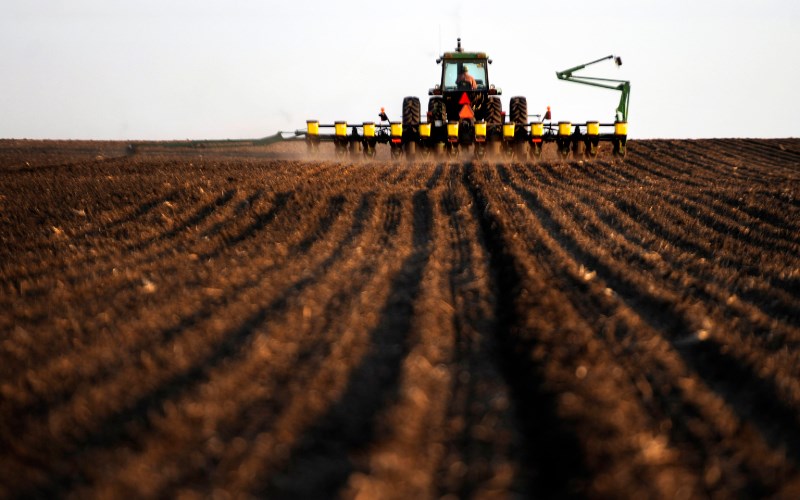A recently published list identifies nearly 100 American plants that have been "destroyed, damaged or impacted by 'accidental fires,' disease, or general causes." Stories of these incidents have been circulating for months with various reasons for what might be causing the problems – and some suspect nefarious involvement.
American Family News spoke to Tommy Waller, director of infrastructure security at the Center for Security Policy. Waller, who also serves as a lieutenant colonel in the U.S. Marine Corps Reserves, has been keenly observing threats to the nation's food and agriculture sector.
"Even if these incidents are not malicious," he says, "the United States cannot afford to have this many plants damaged or destroyed." And while the U.S Department of Agriculture states there are currently no nationwide shortages of food, Waller argues "it has to have an impact."
Fewer and fewer farmers
According to the American Farm Bureau Federation (AFBF), approximately two million farms exist in rural America. Ninety-eight percent of those farms are operated by individuals, family partnerships, or family corporations – and are responsible for producing 86% of U.S. agricultural products. Interestingly, AFBF states that less than 2% of the U.S. population are considered farm and ranch families.

"So essentially, these 2% are feeding the 98% right now," Waller summarizes, adding that the percentages of farmers in the population have been "seriously dwindling" over the last two centuries. In 1820, for example, about 72% of Americans were farmers; and in 1920, about a third of the country were farmers during the Great Depression.
"And this affects the availability and proximity of food from its production to its consumption," he explains. "Food must be cultivated, harvested, processed, stored and transported to regional warehouses where it can be stored again and distributed to local grocers – and all this now occurs over great distances, with an immense dependence on technology and on a small percentage of our nation's workers."
Waller continues: "For America's food producers to have the ability to practice good stewardship of their products to feed our own citizens, especially our poor, and to help other nations in need, the United States can't afford to have problems or vulnerabilities in the food and agriculture sector."
A few vulnerabilities
"Food security is a matter of national security," Waller adds – warning that a serious breakdown in technology or the supply chain, or an attack on the country's critical infrastructure could have a devastating effect on America, perhaps even quickly bringing famine.
"Take out electricity, for example, and nearly every other infrastructure fails," he offers, explaining such a scenario would have grave effects on food and agriculture production, storage, and transport.
"The United States is dangerously unprepared for that type of scenario," he continues. "Sadly, large corporations and government agencies seem to have a general lack of interest in the vulnerability of the electric grid."
And he cautions that food security "could be used as a weapon against the U.S. population if it was compromised by one of the nation's adversaries, like Russia or China."
In addition, politicians are sounding the alarm about China's involvement in the U.S. agricultural sector. Late last month, Rep. Dan Newhouse (R-WA) introduced legislation "to prohibit certain persons [i.e., nationals of the People's Republic of China] from purchasing agricultural real estate in the United States, and for other purposes."
The GOP lawmaker states in a press release: "If we begin to cede the responsibility for our food supply chain to an adversarial foreign nation, we could be forced into exporting food that is grown within our own borders and meant for our own use."
Waller agrees with Newhouse, stating that "Americans are being pushed out of the food and agriculture sector as China continues to invest in U.S. farmland."
In one example previously covered by American Family News, Waller points to the need of amino acids in agricultural feed. "China has taken most of the world's production of it," he notes.
Thus, Waller recommends "keeping production at home with American companies." In addition, he urges federal, state, and local authorities, as well as the average American, to "start treating food security like national security – or things could go south in America rather quickly."
Editor's note: The Center for Security Policy will be publishing a paper later this month to address food security as a national security issue.







